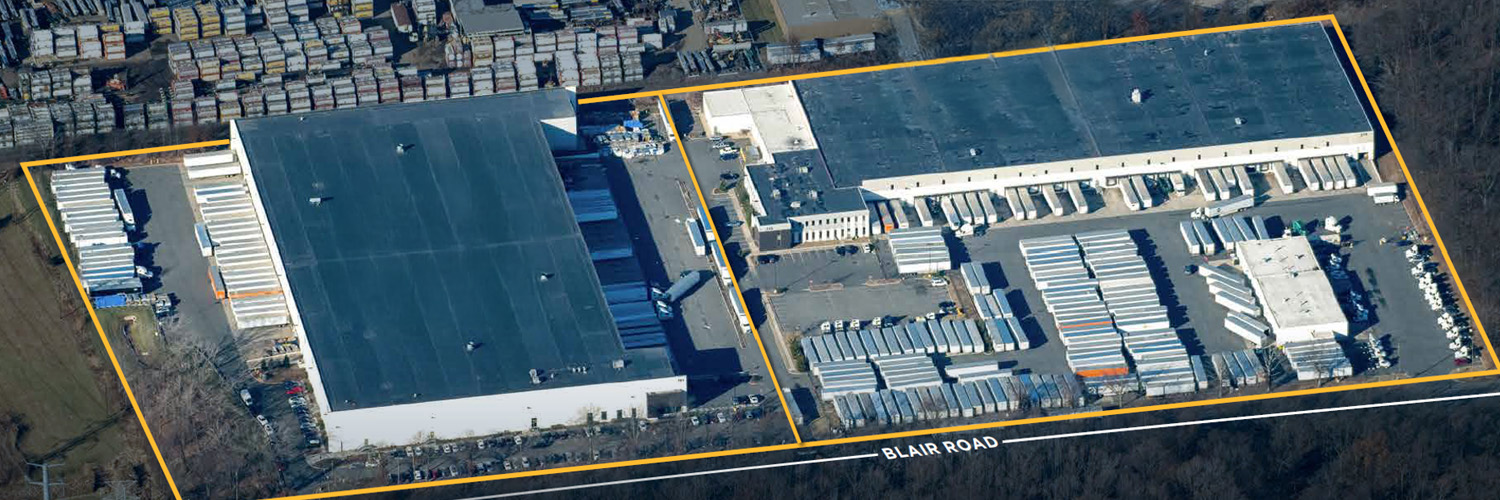Press

CenterPoint Properties Invests in Two Class A Facilities in Northern New Jersey
Search Site
Back to Menu

"We’re focused on providing tenants with strategic locations that reduce shipping times and mitigate costs while preparing our facilities for future green requirements."
- Michael Brazeal, Manager of Development Transactions, Central Region
CenterPoint’s Manager of Development Transactions in the Central Region, Michael Brazeal, sat down for an interview with the Journal of Commerce’s Associate Director, Alessandra Barrett, at the Inland24 conference in Chicago. Read the transcript below or watch “Evolving Industrial Real Estate Needs.”
JOC: Industrial real estate experienced a COVID boom, as many areas of our business did. Where have things settled?
Brazeal: Since the COVID boom when tenant demand exploded, and construction exploded on our end, things have sort of tapered. What I mean by that is there’s so much supply out there, but tenant demand isn’t as crazy as it was during COVID, so it’s kind of settled into a healthy level, but there’s still a lot of new construction to get through. So, I’d say we’re in a period of steady demand from a tenant standpoint, and then in the short-term, maybe a little bit of oversupply. But we foresee the next five to 10 years that it will be undersupplied based on this continued tenant demand that’s much higher than it was, say, five, 10 years ago.
JOC: What are you hearing from your biggest clients? What direction are things going?
Brazeal: There’s a lot of focus on optimizing their supply chain right now. A huge one right now is automation, so there’s a lot of robotics coming into our warehouses. Another focus is a strategic location that they’re looking for. So, during COVID, it was probably more a case of’ get as much space as you can wherever within specific metropolitans,’ but now it’s more, ‘let’s look for infill space to serve cities.’ We already have all of our big box near the ports or intermodal. Now, we really want to focus on that specific location that improves our supply chain. And then lastly, another thing that comes to mind is green initiatives. We’re hearing a lot with new requirements that people want solar and EV charging, so it’s become really important to us to prep any new buildings to be ready for that.
JOC: The supply chain faces numerous challenges at the moment. Some are old, some are new, some are constant. Some have evolved and continue to change each day. From the perspective of the real estate developer, what’s the largest?
Brazeal: The largest issue we’re seeing is transportation costs continuing to rise. It was a huge issue during COVID, and it’s settled down a little bit, but they continue to go up the geopolitical issues worldwide right now. That’s a big concern on everybody’s mind.
JOC: Real estate choices can obviously impact that overall. I’m curious about industrial real estate developers’ role in their tenants’ strategies to mitigate those rising costs.
Brazeal: It all comes down to providing our tenants with strategic locations. I’ve hinted at that in earlier questions, but if we give them the right locations, it could reduce their shipping times, which mitigates their shipping costs. On top of that, as the developer, we can also focus on the design of the building. So, if it’s an infill location near the city, we will focus on keeping it shallow bay so products can get in and out quickly. Or if it’s near a port intermodal airport, we can focus on bigger box, more storage, ample trailer parking. So I think our role overall is to make sure that the location and the design of their space is most efficient within their supply chain strategy.
JOC: What about the partnership piece when it comes to helping a client that perhaps wants to grow geographically? How do you see CenterPoint fitting into that conversation?
Brazeal: One of the most important things for us is to listen to our tenants. What I mean by that is that they really focus on where they need to be within the country. We have a lot of tenants that we’ve organically grown from one city to another, and that’s just meeting with them regularly. CenterPoint has a nationwide presence. We have a presence in almost every major port or inland market, and that provides our tenants with the ability to grow organically with us. So we listen to our tenants; when they grow, we grow. It’s about having a partnership with them.
Subscribe
Microsite Request